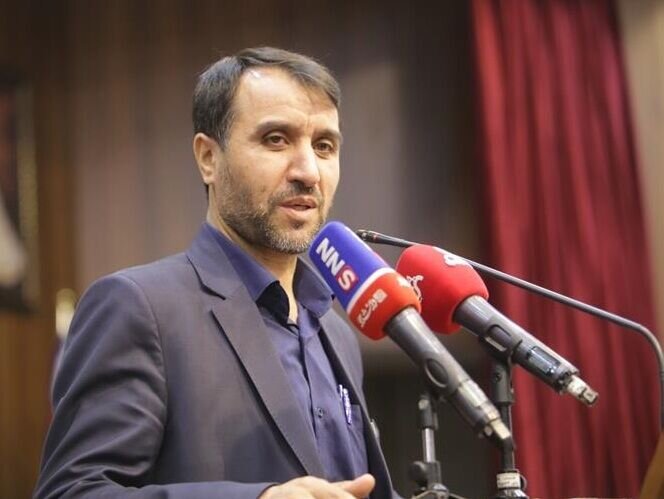Technological needs of petchem sector must be met by domestic firms: NPC head

TEHRAN – Head of Iran’s National Petrochemical Company (NPC) Morteza Shahmirzaei has stressed the need for using the capacities of domestic companies to meet the technological needs of the petrochemical industry to cut dependence on foreign sources, Shana reported.
Speaking in a meeting with the students and scholars at Iran University of Science and Technology (IUST) on Sunday, Shahmirzaei said: “The diversity of manufactured products in an industry is one of the indicators of development in that industry, and today the petrochemical industry is one of the most powerful industries in the country with the production of 550 grades of petrochemical products.”
He put the country’s petrochemical production capacity at 92 million tons, saying that currently 72 petrochemical complexes are active across the country.
Earlier this month, the official said the country’s petrochemical industry relies on domestic knowledge and technology and the industry is mostly self-sufficient.
Speaking to the press on the sideline of a visit to a knowledge-based petrochemical company in Lorestan Province, Morteza Shahmirzaei emphasized the maximum support for domestic knowledge-based companies, saying that Iran's petrochemical industry relies on the strength and expertise of Iranian companies in the path of development and progress.
He underlined the access to technical knowledge as one of the major challenges in the field of petrochemical production and stated: “The National Petrochemical Company, with an intensive program, has obliged the Petrochemical Research and Technology Company to focus on the indigenization of technologies in this industry in cooperation with knowledge-based companies active in this sector.”
The official has also said that domestic companies have supplied about eight billion dollars of equipment and parts for the country’s petrochemical complexes over the past two years.
“In the last two years, about eight billion dollars of equipment and goods required for petrochemical projects have been provided through domestic companies, part of which was first-time construction,” Shahmirzaei stated.
Emphasizing the NPC’s focus on providing domestically manufactured parts and equipment for its projects, Shahmirzaei said: “[In the past two years] about 10 billion dollars have been spent on providing equipment and parts for petrochemical projects, more than 80 percent of which have been produced by domestic companies.”
He pointed out that about 15 parts and equipment needed by the petrochemical industry were made by knowledge-based companies in the 13th government, adding: “Currently, at most 90 percent and at least 40 percent of petrochemical projects use domestically produced goods and equipment.”
The official assessed the ability of domestic manufacturers of petrochemical equipment and goods as very favorable and stated: “Many Iranian manufacturers are providing services to neighboring countries and Southeast Asian countries, and nine Iranian manufacturers are among the major equipment exporters in global markets.”
Mentioning some of his company’s major strategies, Shahmirzaei said: “The most important part of the National Petrochemical Company's strategy is to complete the industry’s value chain and support knowledge-based companies, domestic manufacturing firms, and domestic production of catalysts.”
“The government's strategy in the field of production is to make maximum use of the installed capacity in the petrochemical industry by using the knowledge and capabilities of domestic manufacturers,” he added.
The petrochemical industry plays a crucial role in Iran’s non-oil economy, as petrochemical export is the second-largest source of revenue for the country after crude oil. Petrochemical exports already constitute nearly 33 percent of the country’s non-oil exports.
According to Shah-Mirzaei, the company plans to increase its annual petrochemical production capacity to 200 million tons over the next 10 years.
In this regard, Iranian Oil Minister Javad Oji said that more than 100 petrochemical projects with a total investment of about $70 billion have been defined and will be implemented across the country.
Oji noted that the country will also be completely self-sufficient in producing the catalysts used in the petrochemical industry by the end of the current government administration's incumbency (August 2025).
EF/MA
